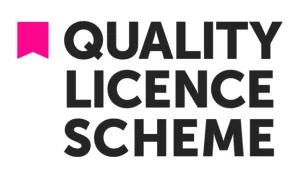Welcome to Open Learning College – Change your career, Increase your salary, and Improve your life.
 Course Overview
Course Overview 
Embark on a transformative learning journey with the UK’s most innovative home study provider, offering courses designed to unlock your true potential and facilitate the career change you desire. Access our distance learning courses directly from anywhere, anytime, and acquire industry-recognised Professional Qualifications essential for advancing in your career.
Specifically, explore the flexible and convenient Risk Management (Level 3) course, an ideal way to gain a diploma qualification. Whether you aim for further education, improved job prospects, or expanded knowledge, this comprehensive course allows you to prepare thoroughly for exams or careers through home study. Plus, it’s structured to be accessible and beneficial even if you have no prior knowledge in Risk Management.
Of late, the world has seen the failure of forecasting financial risk properly, anomalies, and the impact of that. One of the key features of the recent corruption and failings in institutes such as banks, businesses, and financial institutions, particularly in the West, has been a lack of planning, monitoring, poor management, not recognising threats, and a lack of procedures set up to minimise the failings. It has caused a loss of opportunities and huge investments such as pension funds being lost and delivered poor services. It has not only affected and devastated the economies of many countries such as Iceland but has had a global impact. What is clear is that lessons have not always been learned, and we see mistakes being repeated on a daily basis.
The level 3 diploma in management at Open Learning College examines changes in risk management practice against the context of the changes in the UK, EU, US, and global economy, to meet legislature and will be of particular interest to those needing to practice risk management skills on a day-to-day basis. Many of the skills covered will be similar or overlap with qualities needed for a competent and professional manager or leader. It provides detailed learning on a range of relevant risk management topics, combining theoretical background with practical tools, risk management techniques, and risk communication formats.
 Course Key Topics
Course Key Topics
the Risk Management (Level 3) course is divided into 10 modules.
Module 1: What is Risk Management?
Murphy states that ‘what can, will go wrong!’ Risk can be minimised by being prepared for every problem and issue, or what to do if something does go wrong or not as expected. This module will introduce the types and background to modern concepts of risk management (RM) skills, and how these can change and develop within a business management context. It examines the way RM evolves, how to assess and set guidelines or processes to mitigate difficulties, and the risk manager’s role in this process. The module concludes a range of guidelines and framework (often called re-engineering risk) how to implement new skills and behaviours in order to reduce practical risk issues, by looking at effective RM e.g. using SWOT analysis or SMAR objectives.
Module 2: The individual as a Risk Manager
The best way to learn is by using an actual example, Cortal-plc Corp to examine the role and focuses on some essential core skills for a risk manager, with tips and techniques for successful risk management. Risk goal-setting, risk problem-solving, effective risk resolution meetings, risk interviewing, working with others e.g. through training and giving or receiving risk related feedback are addressed. Relevant IT tools, systems and application are explored, including risk landscape analysis. The role of a risk manager to set procedures, be clear and open, try not to under-risk and lead or involve others to manage risk is explored.
Module 3: Risk Structure and Environment, RiskSE
The key issues and components covered to assess RiskSE are vision, strategy, design, plan, implementation, analysis and lessons learned post-project. This module includes an assessment of different features and types of risk organisation structure and the various environments within which risk organisations operate. This module assesses recent trends, available support such as IT packages or activities one can use and the move towards the use of risk integration. Strategies and direction at how to transform and analyse risk initiatives, and the effects to anticipate a risk organisation future evolution is discussed. The various roles and tasks involved such as for e.g. Risk Architecture, Risk Planner, Analyst or Manager are explored.
Module 4: Managing Risk Processes
A company that had tried to introduce a Risk Total Quality and improved processes to improve quality and value-for-money, but failed for 2-3 years is used as a real case study sample. The company’s internal features of a risk organisation, including planning and strategy, risk costs and budgets and the benefits of understanding the risk processes is considered. A consultant was recruited to assess and implement required change within a six-month period. They developed a customised Risk product development life cycle. The findings, plans, reviewing these with staff, amending, implementation design, testing, monitoring and outcomes will be explored. Practical advice is provided on facilitation of workshops, in the context of risk process improvement.
Module 5: Managing Risk Projects
If a project overruns and costs escalate those in management will be blamed. Companies have a legal duty to disclose such failings early and quickly. The module asks ‘What is a risk project’, providing a step-by-step breakdown of the key phases for managing risk projects successfully. It provides advice on financing risk projects, and on quality risk assessment. The module provides guidance on risk project team roles and effective brainstorming for problem-solving. Presently in the UK, Tesco, a large supermarket change has misled shareholders and the public about their profit forecasts, and failure to do this is illegal and fails certain regulatory obligations. Planning and estimating costs and risks, and how to evaluate will be assessed.
Module 6: Managing Risk Diversity, MRiskD.
Diversity in terms of risk is discussed because no matter the type of diversity, it has to be managed professional with attention to detail so that the performance is measured in terms of Risk/Change strategy. Companies need to embrace the increasingly diverse UK, EU, US and global risk mandates and the business case for managing by diversity-unification principles and this is discussed. Key risk issues and legislation issues will be examined, including common challenges and potential conflicts in real business examples, and diverse risk themes of international regulatory styles will be explored, e.g. a company specialising in Wireless and Broadband is able to offer training East European countries under-going cultural, Risk management and technological change using its unique MRiskD methodology.
Module 7: Risk and Change
There are a vast number of laws and regulations concerning Corporate Risk, non-compliance and some of these are addressed with regard to Governance in the management of change since those in power will determine what will be managed. Risk and change may be regarded as a ‘chicken and egg principle’ – which comes first? Often organisations are challenged to change in order not to be penalised, but it can also be a reason to e.g. improve performance, restructure and change the organisational culture, and how this can be done is investigated. Accordingly a review of risk-caused/affecting organisational changes, managing the risk-change process and dealing with individual resistance and cultural issues is included. The use of coaching, mentoring and facilitation development is explored in a context of companies never quite managing to meet every legislative and internal change required, so change in small sections or as distinct projects is advocated. The role of every individual in an organisation is discussed in terms of strategic goals and business objectives.
Module 8: Quality and Risk
If you cannot size it, you cannot measure it, and if you cannot measure it, you cannot improve it – this is a quality and risk axiom. Every business hopes to deliver quality in terms of the service and products it offers. Risk control as a measure for quality performance will be discussed. The use of risk goals, related risk performance indicators, service level agreements and benchmarking will be considered, along with a review of quality-risk management improvement. Countless frameworks, standards, techniques and concepts e.g. a quality management computer system for improving product or service quality and some examples will be investigated in the contexts of companies and business environment.
Module 9: Audit and Risk
If you cannot audit it, you cannot measure it, and if you cannot measure it, you cannot improve it – this is an audit and risk axiom. Historically audits were conducted to assess and guarantee and gather financial information about a business, but today audits are a general measure of objects with information on e.g. IT- and environment systems and risk programme implementation. The use of audit objectives, related risk-audit performance indicators, service level agreements and benchmarking are considered, along with a review of audit-risk management improvement. Auditors are generally conducted by independent people who must adhere to standards set by governing professional bodies that regulate business. This helps to provide assurance for a third party that the audit reports present ‘fairly’ a company’s financial condition and results of operating performance. Internal auditors are also employed for larger companies and they evaluate performance, manage output, and mitigate risks on a daily basis.
Module 10: Ethics and Risk
The rise of corporate and banks scandals continue to headline our news due to fraud, dishonesty, oversight and corruption. With this the number of compliance measures for Risk and Misconduct reduction, rules and regulations grow, are developed and enforced, yet they fail to deter and totally stop the scandals. This module examines recent trends in business ethics which arose out of historic values to encourage people not to ‘do bad business, steal and rob their neighbours’, corporate governance and wisdom, environmental issues and social responsibility. Practical advice is provided with tips and guidance on making ethics and risk presentations so that every employee is aware of business risk and ethics. Finally, the course review is done to reflect on the learning and also to help think about career goals and next steps.
(Please click on the curriculum tab above to see a detailed view of each module)
Course Content
Risk Management (Level 3) – FREE Starter Pack
How to…. (a series of explainer videos)
Module 1 – What is Risk Management?
Module 2 – The individual as a Risk Manager
Module 3 – Risk Structure and Environment, RiskSE
Module 4 – Managing Risk Processes
Module 5 – Managing Risk Projects
Module 6 – Managing Risk Diversity, MRiskD.
Module 7 – Risk and Change
Module 8 – Quality and Risk
Module 9 – Audit and Risk
Module 10 – Ethics and Risk
Course Resources
Final Exam
College Announcements
🔍 Unlock the Secrets of Risk Management with £50 OFF the Risk Management Course! ⚖️📉
Ready to delve into the dynamic world of risk management?
For a limited time, we're excited to offer an exclusive discount of £50 off our Risk Management (Level 3) Course!
Utilize code RISK50 during checkout before the month concludes!
👣 Why Choose Our Risk Management Course
The Risk Management (Level 3) Course, presented by Open Learning College, is your key to mastering risk analysis and strategies. This comprehensive course spans 10 modules, covering crucial topics such as risk structure, managing risk projects, diversity in risk, and ethics. Gain practical skills to navigate the complexities of risk management in today's ever-changing business landscape.
💪 What Makes Our Course Stand Out
Real-World Relevance: Explore current issues like corporate scandals and ethical considerations.
Practical Tools: Acquire hands-on skills for effective risk resolution, project management, and more.
Expert Guidance: Benefit from the expertise of our tutors, ensuring comprehensive support throughout your learning journey.
Don't let this chance pass you by! Enrol now, apply code RISK50* at checkout, and embark on a transformative journey to becoming a proficient risk manager. ⚙️📈
*This discount code cannot be used in conjunction with any other offer.









 Get Social!
Get Social!







Emily Turner.